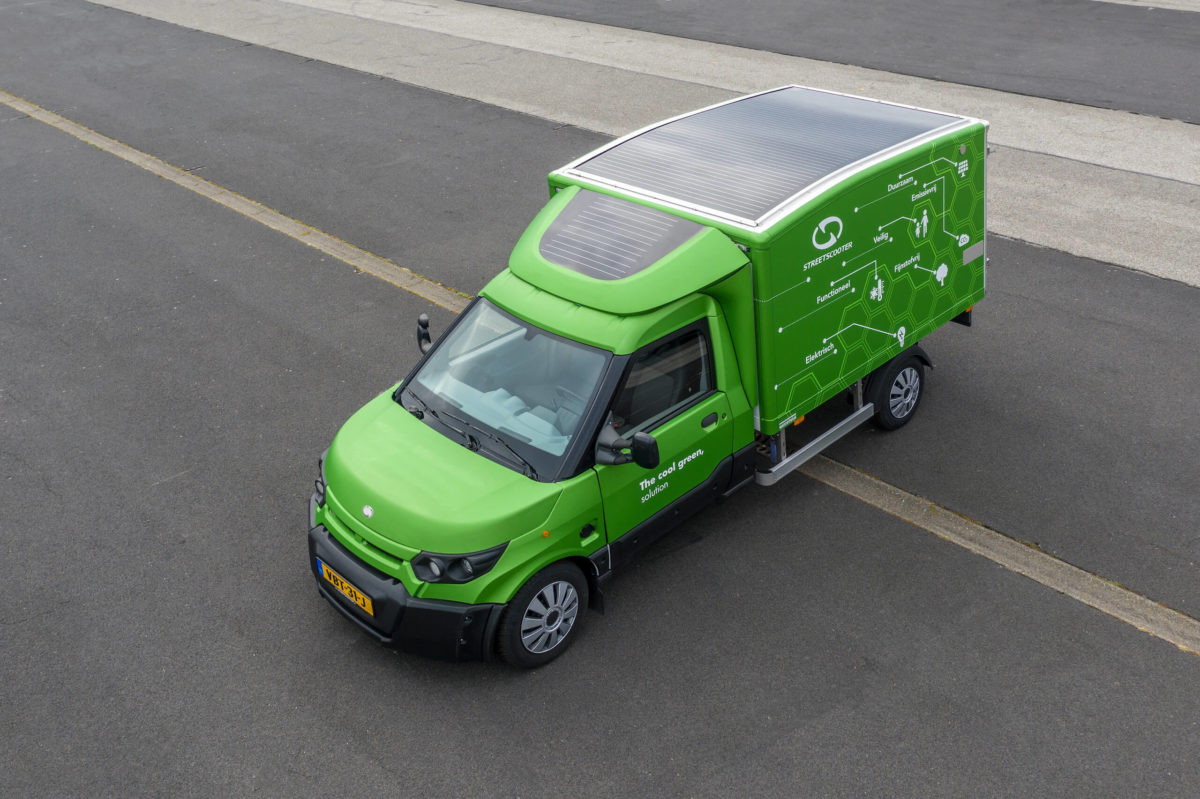To go Dutch, now means to go electric and solar-powered? Netherlands-based distributor of electric delivery vans, Bluekens has fitted a solar roof onto a delivery vehicle. The vehicle was demonstrated at Horecava, a Dutch hospitality trade show held in Amsterdam.
With talk about green credentials creeping into nearly every aspect of life, some have been somewhat active in heeding the calls to improve emissions standards in their respective business areas. One such area is e-commerce, which has gained tremendous popularity. In recent years this was met with criticism over emissions related to so-called last-mile-delivery, suggesting that e-commerce incurs significantly higher CO2 emissions compared to customer pick-up.
Germany based logistics giant DHL has reacted by launching a delivery van manufacturing business back in 2015. The new company, Streetscooter, developed electric vans which the company sold not just in Germany, and to DHL, but across the world and to many other logistics businesses, or those in need for a delivery van. After a hydrogen-powered van was introduced last year, the Dutch distributor of these vehicles, Bluekens, has now presented another development, where the ‘Work L’ model has been fitted with a solar roof.
According to the Dutch company, the solar roof will only power cooling and freezing equipment in the load area of the van. Depending on customer needs, different configurations are available, with maximum PV power ranging from 440W to 1400W. The product sheet says there are different module configurations, depending on a 12V or 24V battery setup. Both mono and multi-crystalline cells can be connected in either 36, 72, or 144 cell setup.
The cooling system will be fed through a battery that the solar roof charges. The rated charge current is 30A or 50 A, depending on whether the customers want a 12V or 24V battery voltage. There are also several battery configurations on offers, again depending on what the customer needs.
The solution is an adaptation of the Streetscooter Work L model, and as Bluekens developed, it will be available only in the Netherlands.
Adding solar modules to car roofs really has become a Dutch signature move, as last year Lightyear, suggested it would bring to the market the first serious solar-powered vehicle. Since the first announcement, Lightyear disclosed that leaving the car in the sun for an hour results in a 12 km driving range. Delivery is expected in 2021.
Meanwhile, the concept of solar mobility was also further explored in Korea and Japan. Hyundai has launched a Sonata model featuring solar roofs, bonnets and body kits. Hyundai estimates that with six hours of charging in direct sunlight each day, the Sonata Hybrid could gain 1300 kilometers of extra electric driving a year.
Also, Toyota has launched a Prius featuring a solar body kit, in July last year. Toyota collaborated with Sharp and the New Energy and Industrial Technology Development Organization (NEDO) for a different cell tech that purports to offer a massive 34% conversion efficiency. Combining indium gallium phosphide (InGaP), gallium arsenide (GaAs) and indium gallium arsenide (InGaAs) the result is a triple-junction cell.
And thin-film manufacturer Hanergy and Chinese carmaker Joylong Automobile applied thin-film cells to the roof of a small commercial vehicle which was tested for a month. Hanergy says its K-Car could offer an effective daily range of 50-100km without charging.
This content is protected by copyright and may not be reused. If you want to cooperate with us and would like to reuse some of our content, please contact: editors@pv-magazine.com.




1 comment
By submitting this form you agree to pv magazine using your data for the purposes of publishing your comment.
Your personal data will only be disclosed or otherwise transmitted to third parties for the purposes of spam filtering or if this is necessary for technical maintenance of the website. Any other transfer to third parties will not take place unless this is justified on the basis of applicable data protection regulations or if pv magazine is legally obliged to do so.
You may revoke this consent at any time with effect for the future, in which case your personal data will be deleted immediately. Otherwise, your data will be deleted if pv magazine has processed your request or the purpose of data storage is fulfilled.
Further information on data privacy can be found in our Data Protection Policy.